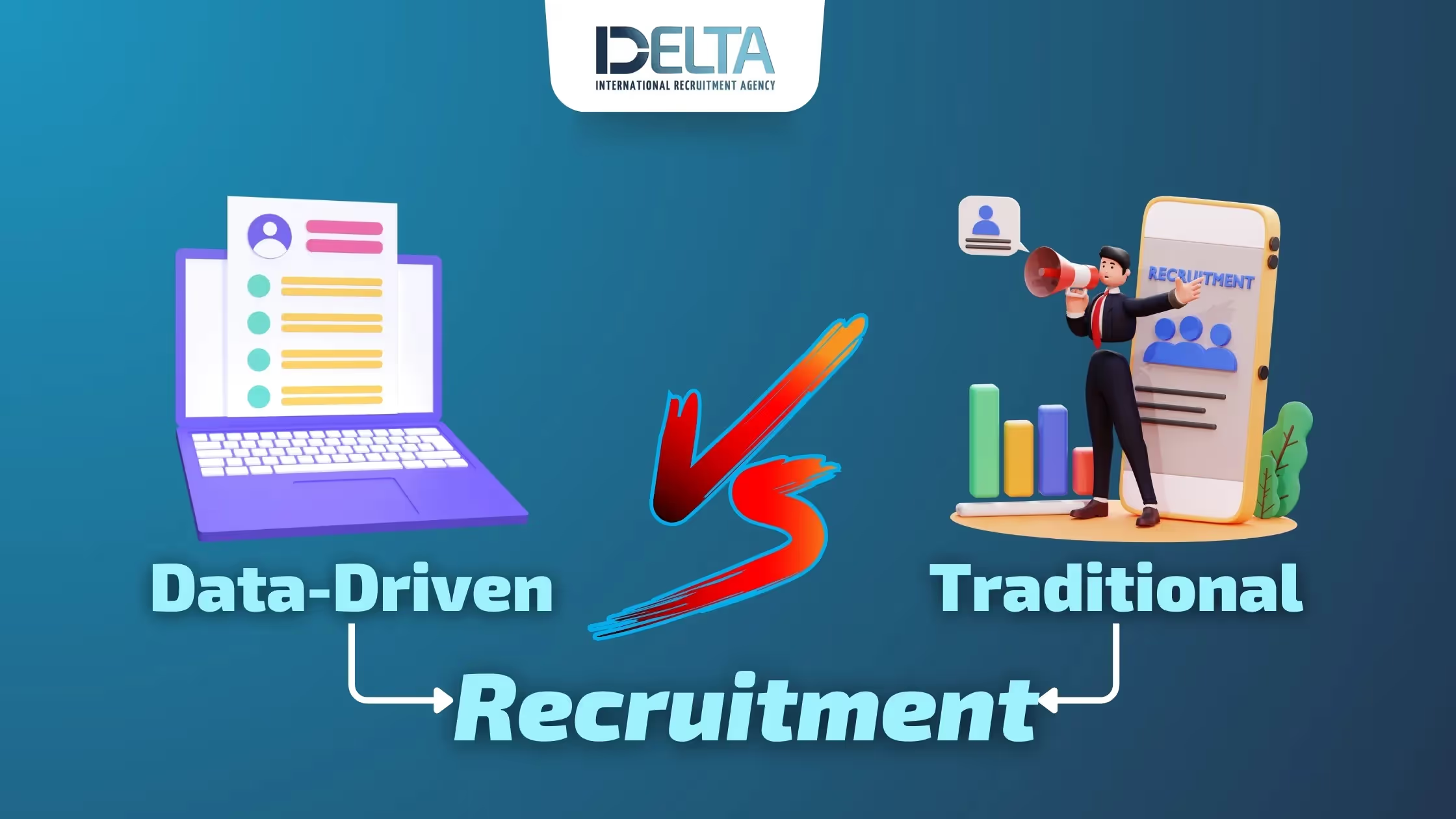What is Embedded Recruitment?
Embedded recruitment, also known as Recruitment-as-a-Service (RaaS) or
Embedded Talent Partner, is a model where external recruitment experts are
integrated into a company's in-house talent function for a set period. This
approach is designed to combine the external expertise of recruitment
companies with an in-depth understanding of the company's culture and
operational sector.
Embedded recruitment represents a shift from isolated hiring to a cohesive,
team-based approach. It offers a flexible and scalable solution, particularly beneficial for
companies with fluctuating hiring needs, such as those with seasonal or
project-based requirements.
Challenges such as dependency on external teams can arise, but
these can be mitigated with strategic planning and the right approaches.
Saudi Embedded recruitment agencies
are transforming how companies hire, providing tailored, efficient, and
strategic hiring solutions across various stages of business growth.
Embedded recruitment bridges the gap between external expertise and internal hiring needs, aligning recruitment with the company's broader objectives.
Challenges and Solutions in Recruitment

The Pros and Cons of Embedded Recruitment
Embedded recruitment, also known as Recruitment-as-a-Service (RaaS) or
Embedded Talent Partner, is a model where a consultancy company provides
skilled recruiters to join a client's in-house talent function for a set
period. This approach is flexible
and scalable, ideal for companies with fluctuating hiring needs. For instance, businesses
with seasonal or project-based requirements can adjust their recruitment
efforts seamlessly.
However, there are challenges to consider. One significant concern is the
potential dependency on external teams, which could impact
the internal team's autonomy. But with the right strategies, these challenges
can be mitigated, ensuring teams fully leverage the benefits of embedded
recruitment.
Embedded recruitment emphasizes cost-effectiveness, cultural fit, and a
long-term talent strategy, making it a valuable asset in the modern
recruitment landscape.
In summary, embedded recruitment tailors to various stages of business growth,
from startups to large corporations. It represents a shift from isolated
hiring to a cohesive, team-based approach, aligning recruitment with the
company's broader objectives.
Embedded Recruitment vs Traditional Recruitment
When comparing embedded recruitment to traditional
recruitment, it's essential to understand the key differences that set them
apart. Embedded recruitment, often referred to as Recruitment-as-a-Service
(RaaS), integrates external recruitment expertise directly into a company's
internal team for a specific period. This model is highly adaptable, allowing
businesses to scale their recruitment efforts in line with their hiring
needs.
Traditional recruitment, on the other hand, typically involves either an
in-house team managing the hiring process or the complete outsourcing of
recruitment to external agencies. The choice between these models can
significantly impact a company's hiring success and operational
efficiency.
Embedded recruitment offers a unique blend of flexibility and
in-depth understanding of a company's culture, which is not always achievable
with traditional methods. Here's a quick comparison:
-
Embedded Recruitment: Tailored solutions, cost-effective, cultural
fit
-
Traditional Recruitment: Fixed structure, potentially higher
long-term costs
By strategically leveraging embedded recruitment, companies can enjoy the
benefits of specialized expertise while maintaining control over their hiring
processes and culture.
Ultimately, the decision between embedded and traditional recruitment should
be based on the specific needs and goals of the organization. While embedded
recruitment can provide a dynamic and integrated approach, traditional methods
may be preferred for their stability and established processes.

Benefits of Data-Driven Recruitment
Enhancing Recruitment Efficiency
In the realm of recruitment, efficiency is paramount. A fast and efficient recruitment
process can not only reduce costs but also enhance a company's reputation from
both a market and candidate perspective. By integrating data-driven
strategies, companies can streamline their hiring processes, ensuring they
adapt to business needs in real time.
Embedded recruitment brings a new level of efficiency by placing
recruitment experts within the company, fostering immediate synergy and
collaboration. This model allows for real-time strategizing and execution,
transforming the approach to talent acquisition.
Instead of getting bogged down in paperwork, recruiters can now focus on what
really matters: building strong relationships with candidates and connecting
closely with key players in the hiring process.
The table below illustrates the impact of data-driven recruitment on hiring
efficiency:
|
Metric |
Traditional Recruitment |
Data-Driven Recruitment |
|
Time to Hire |
30+ days |
15-20 days |
|
Quality of Hire |
Varies |
Consistently High |
|
Candidate Experience |
Inconsistent |
Streamlined |
By leveraging predictive modeling and recruitment marketing software,
companies are not only doing things faster; they're doing them better. The
right talent acquisition software turns recruitment into a finely tuned,
information-driven process, significantly increasing the likelihood of finding
the perfect fit for every role.
Leveraging Predictive Modeling
Predictive modeling in recruitment harnesses the power of machine learning and advanced analytics
to transform the hiring process. By analyzing
historical data, these intelligent systems can forecast future talent needs and predict
candidate success, streamlining the selection process.
-
Predictive analytics evaluates resumes, interviews, and assessments to
identify high-potential candidates.
-
AI-driven tools can determine which sourcing channels yield the best
candidates, optimizing recruitment channels.
-
The use of AI reduces the risk of costly hiring mistakes by providing
data-backed insights into candidate potential.
Predictive modeling is a game-changer for HR professionals, enabling them to
make informed decisions and focus on strategic talent acquisition. It not only
accelerates the hiring process but also enhances the accuracy of candidate
selection.
Recruitment Marketing Software
Recruitment marketing software is a transformative tool that leverages marketing
principles to enhance the hiring process. By attracting, engaging, and advancing
talent, it offers a comprehensive solution for HR professionals to optimize
recruitment strategies.
Recruitment marketing software is particularly beneficial for
industries like retail, where the demand for top talent is high and the pace
is dynamic. For instance, in retail recruitment, software can streamline the
hiring process, ensuring that businesses connect with the right candidates
efficiently.
The following table highlights some of the best recruitment marketing platforms as rated by G2 in 2024:
|
Rank |
Platform |
|
1 |
Ceipal ATS |
|
2 |
CareerBuilder TN |
|
3 |
Hireology |
|
4 |
Zoho |
|
5 |
JobDiva |
|
6 |
100Hires |
|
7 |
Sense |
|
8 |
Lever |
|
9 |
JazzHR |
|
10 |
Greenhouse |
Embracing recruitment marketing software can lead to more efficient and data-driven decision-making, ultimately nurturing employee growth and retention.
Challenges and Solutions in Recruitment

Balancing Cost and Specialized Expertise
In the recruitment landscape, balancing cost with the benefits of specialized recruitment
expertise is a critical challenge. Smaller businesses, in particular, may find
the fixed-cost model of external recruitment services to be a significant
investment. To address this, a customized, scaled-down service
can provide a more feasible solution, ensuring that the benefits of
specialized expertise are not lost due to budget constraints.
-
Dependency on external teams can lead to a lack of internal
capabilities.
-
Possible cultural misalignment with external recruiters may occur.
-
In-house teams might lack specialized knowledge in niche areas.
To mitigate these challenges, fostering a collaborative environment for
knowledge transfer and investing time in onboarding external recruiters are
essential. Regular feedback sessions can help maintain cultural alignment
and integrate external expertise with internal processes.
By directly addressing these challenges with appropriate strategies,
businesses can effectively utilize recruitment services while minimizing
potential drawbacks.
Improving Recruitment Strategies
To stay competitive in the job market, companies must continuously refine
their recruitment strategies. Attracting and engaging talent is a dynamic process
that requires a blend of creativity and
analytics. By leveraging social media platforms and SEO, organizations can
enhance their visibility and appeal to both active and passive
candidates.
Attracting talent involves targeted advertising campaigns and
job boards, while engaging talent necessitates personalized communication
and a positive candidate experience. Here are some best practices for social
media recruiting:
- Use video content to capture attention
-
Utilize LinkedIn Recruiter features for targeted outreach
-
Promote employee advocacy to amplify reach
-
Use job-specific hashtags to attract relevant candidates
-
Leverage employee networks for referrals
-
Optimize recruitment content for mobile users
The process of improving recruitment strategies is not just about filling
positions quickly; it's about finding the right fit for the company culture
and the strategic goals of the organization.
Data-driven reporting and analysis play a crucial role in enhancing the efficiency of recruitment strategies. By adopting an agile and cost-effective approach, companies can expand their candidate reach, enhance employer branding, and enable direct engagement, ultimately leading to a more culturally aligned and effective recruitment process.
Incorporating Gamification in Skills Assessment
In the evolving landscape of recruitment, gamification has
emerged as a transformative approach to skills assessment. By integrating
game-like elements into the evaluation process, companies can create a
more engaging and interactive experience for candidates.
This not only allows for a dynamic assessment of skills but also positions
the organization as innovative and candidate-friendly.
Gamified assessments go beyond traditional methods by simulating real-world
scenarios where candidates can showcase their abilities in a practical and
enjoyable manner.
The benefits of gamification in recruitment are manifold. Here's a brief
overview:
-
Enhanced Candidate Engagement: Interactive challenges keep
candidates interested and invested in the process.
-
Real-World Skill Application: Candidates demonstrate their skills
in scenarios that mimic actual job tasks.
-
Innovative Brand Image: Adopting gamification can signal a
company's commitment to modern and candidate-centric hiring practices.
While the concept is promising, implementing gamification requires careful
planning and execution. It's crucial to ensure that the games are relevant
to the job's requirements and that they provide meaningful insights into a
candidate's capabilities. As recruitment continues to adapt, gamification
stands as a powerful tool to revolutionize how we assess and attract
talent.
Conclusion
In conclusion, the comparison between data-driven recruitment and traditional recruitment reveals significant differences in approach, methodology, and outcomes. Data-driven recruitment Agencies from Pakistan are with its emphasis on continuous reporting, analysis, and predictive modeling, offers a more precise and impactful approach to talent acquisition. The integration of advanced analytics and machine learning algorithms enhances the efficiency, quality, and future forecasting of recruitment processes.
On the other hand, traditional recruitment methods, while effective in their
own right, may benefit from incorporating data-driven decision-making and
gamified assessments to optimize sourcing strategies and candidate
experience. As the future of workforce shaping evolves, the strategic
adoption of data-driven recruitment is poised to revolutionize the hiring
landscape and contribute to the overall success of businesses.
Frequently Asked Questions
What is Embedded Recruitment?
Embedded recruitment (Recruitment-as-a-Service or Embedded Talent Partner)
is a model where a consultancy company provides skilled recruiters and
sourcers to join the client’s in-house talent function for a set period of
time.
What are the Pros and Cons of Embedded Recruitment?
Pros: Enhanced efficiency, effective and culturally aligned recruitment
process, tailored to meet modern business challenges. Cons: Cost
considerations, potential drawbacks in specialized recruitment
expertise.
How does Embedded Recruitment differ from Traditional Recruitment?
Embedded Recruitment involves consultancy company providing skilled
recruiters and sourcers to join client’s in-house talent function, while
Traditional Recruitment involves establishing an internal recruitment team
to manage hiring processes.
How does Data-Driven Recruitment enhance efficiency?
Data-Driven Recruitment involves continuous data-driven reporting and
analysis to enhance recruitment efficiency, allowing companies to dive deep
into their hiring processes and make informed decisions.
What is Predictive Modeling in Data-Driven Recruitment?
Predictive modeling in Data-Driven Recruitment leverages advanced analytics
to forecast future talent needs, predict candidate success rates, and
determine which sourcing channels yield the best candidates.
How does Recruitment Marketing Software revolutionize hiring processes?
Recruitment Marketing Software revolutionizes hiring by attracting,
engaging, hiring, and advancing candidates, maximizing exposure, and
increasing the likelihood of finding the right match.
How can employers leverage data-driven decision-making in recruitment?
Employers can leverage data-driven decision-making by analyzing recruitment
data to identify trends, optimize sourcing strategies, and enhance the
candidate experience, making informed decisions that contribute to the
overall success of their hiring efforts.
What is the role of gamification in skills assessment processes?
Gamification in skills assessment processes provides a more engaging and interactive experience for candidates, enhancing the assessment process and improving candidate engagement.




























